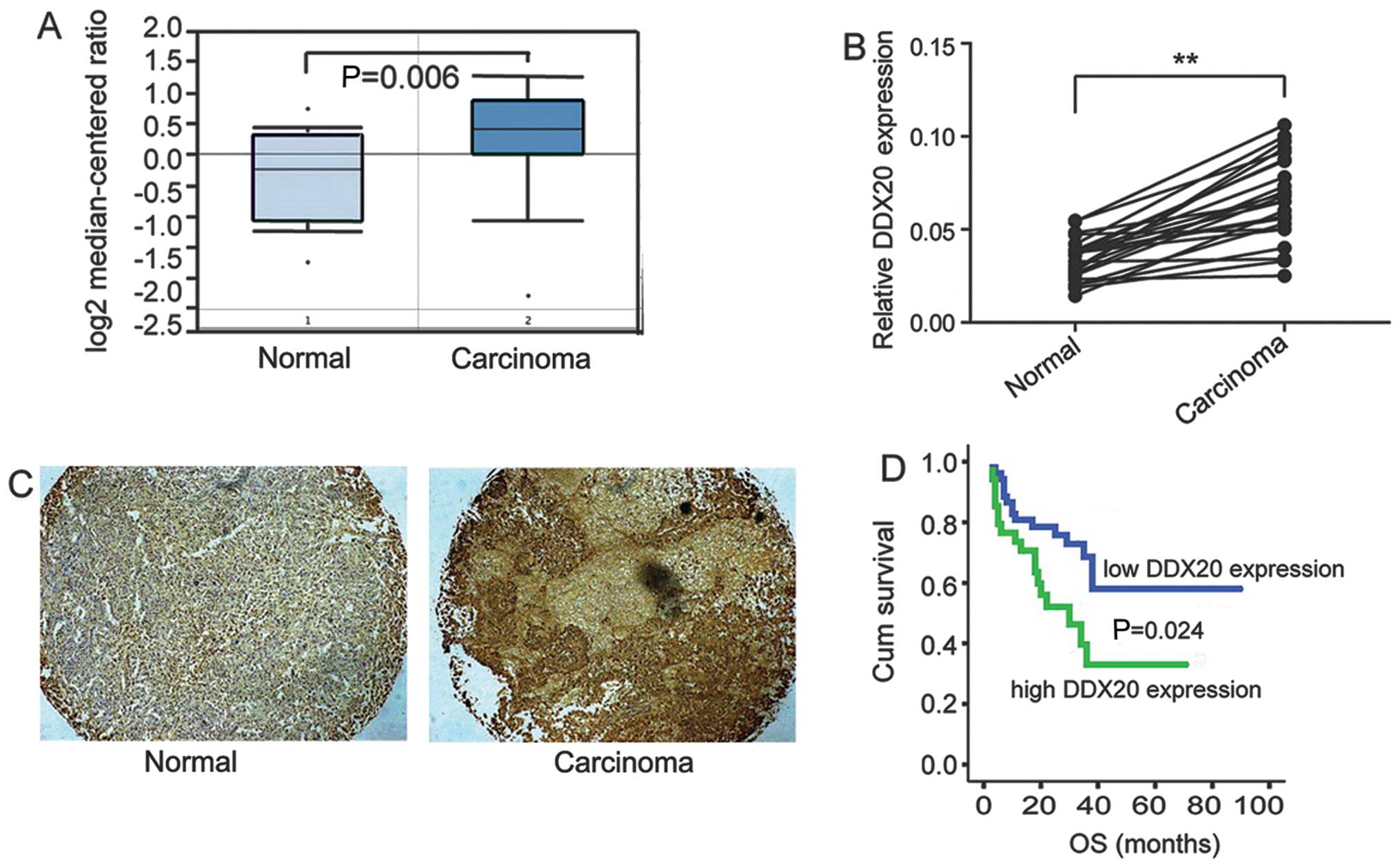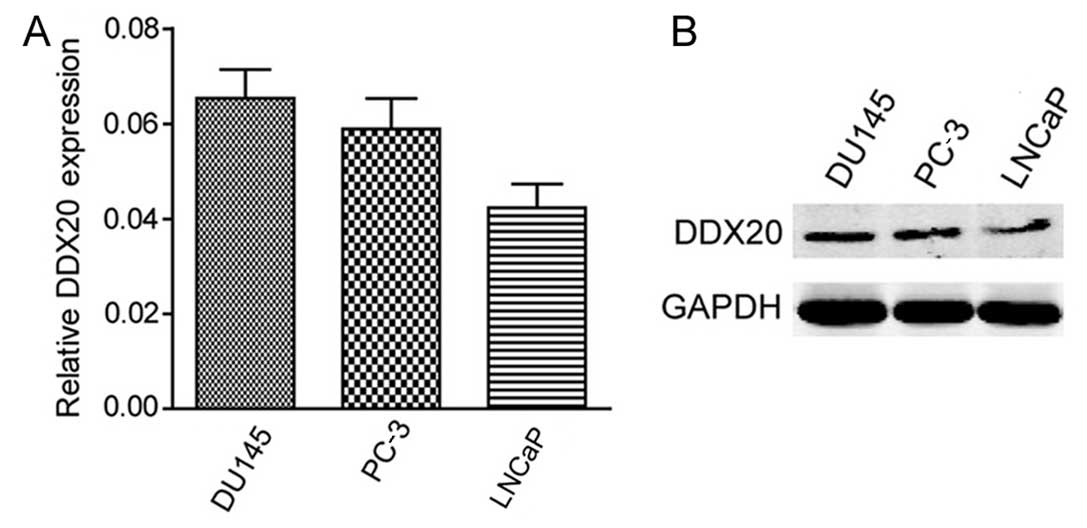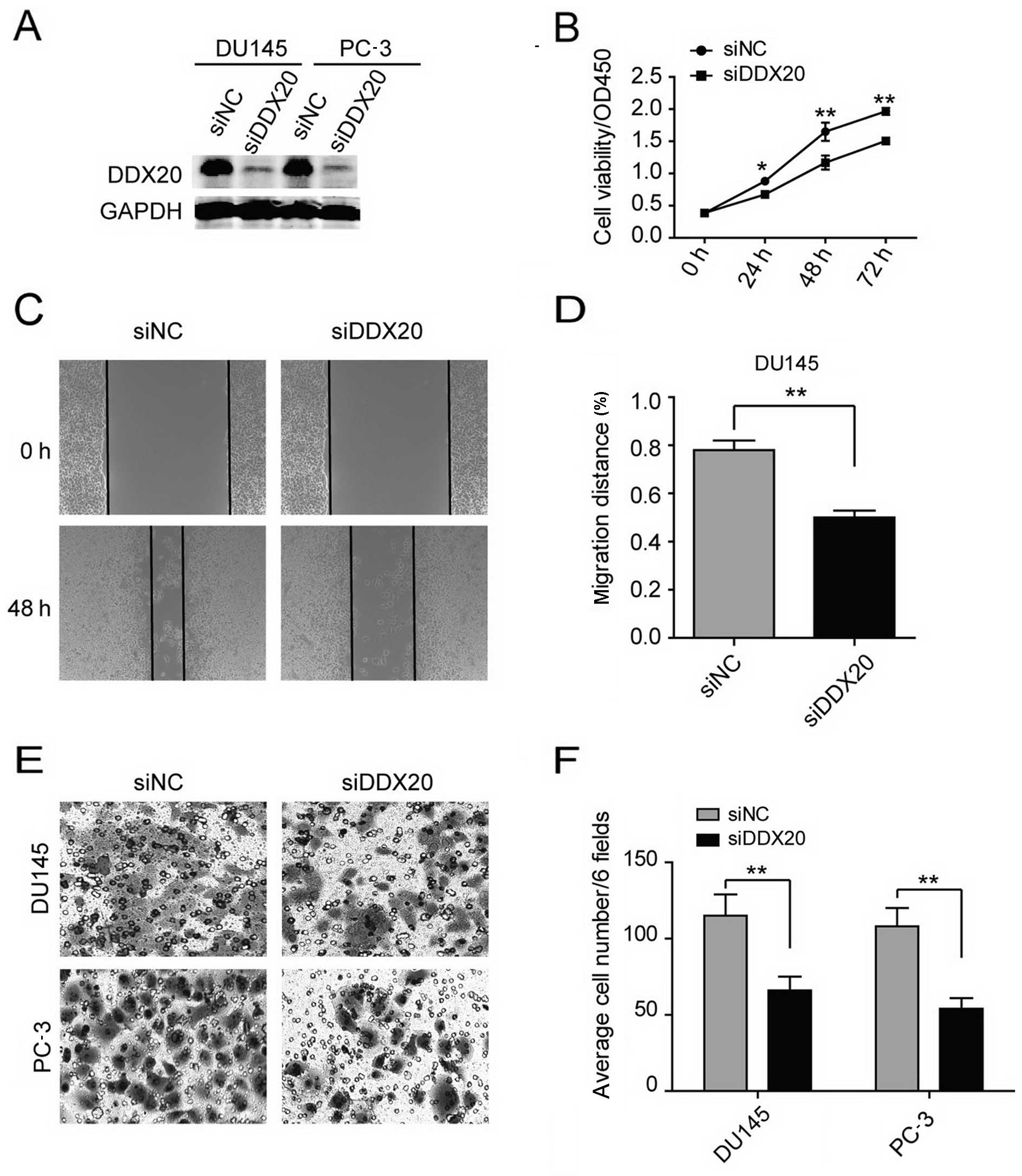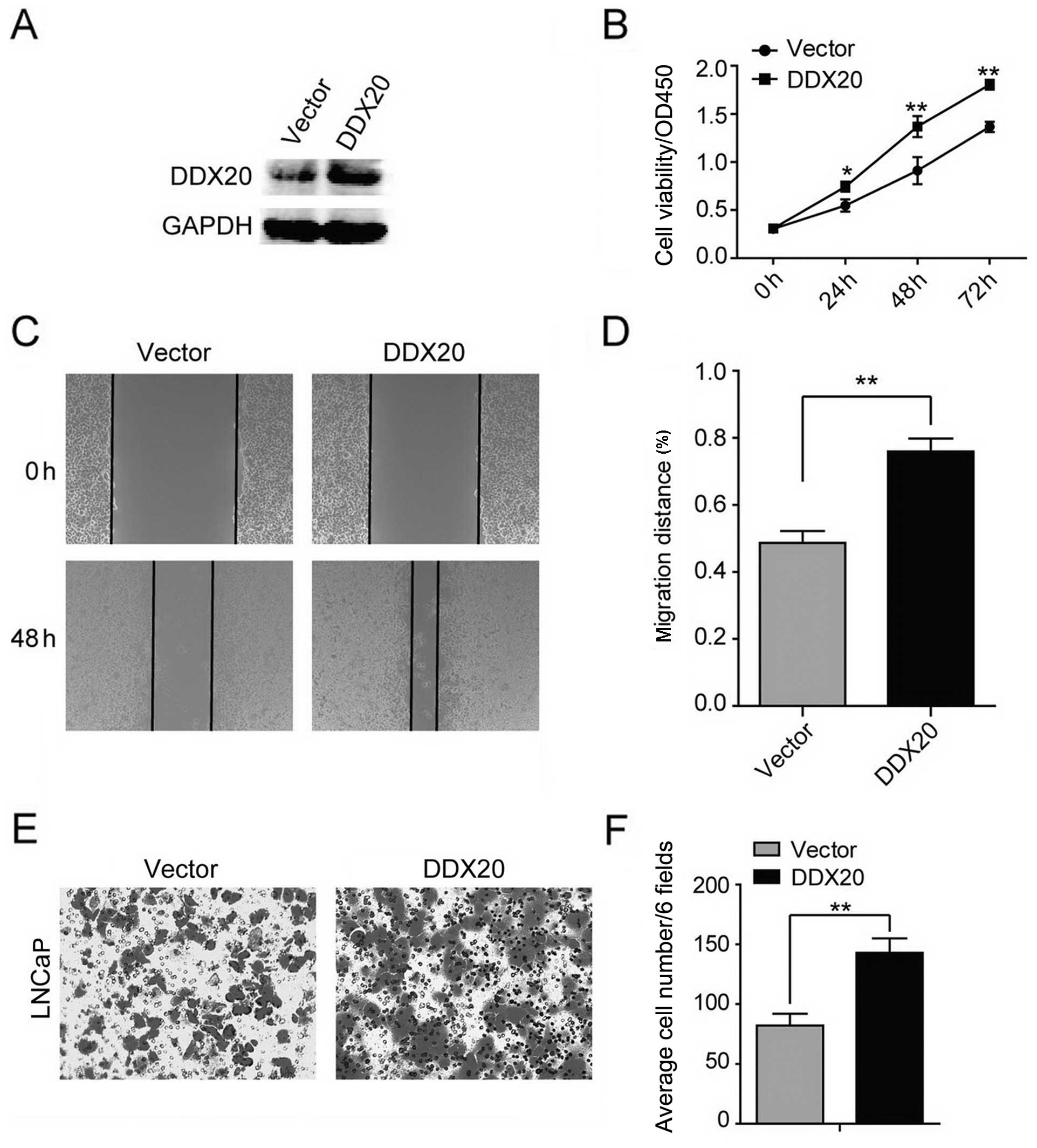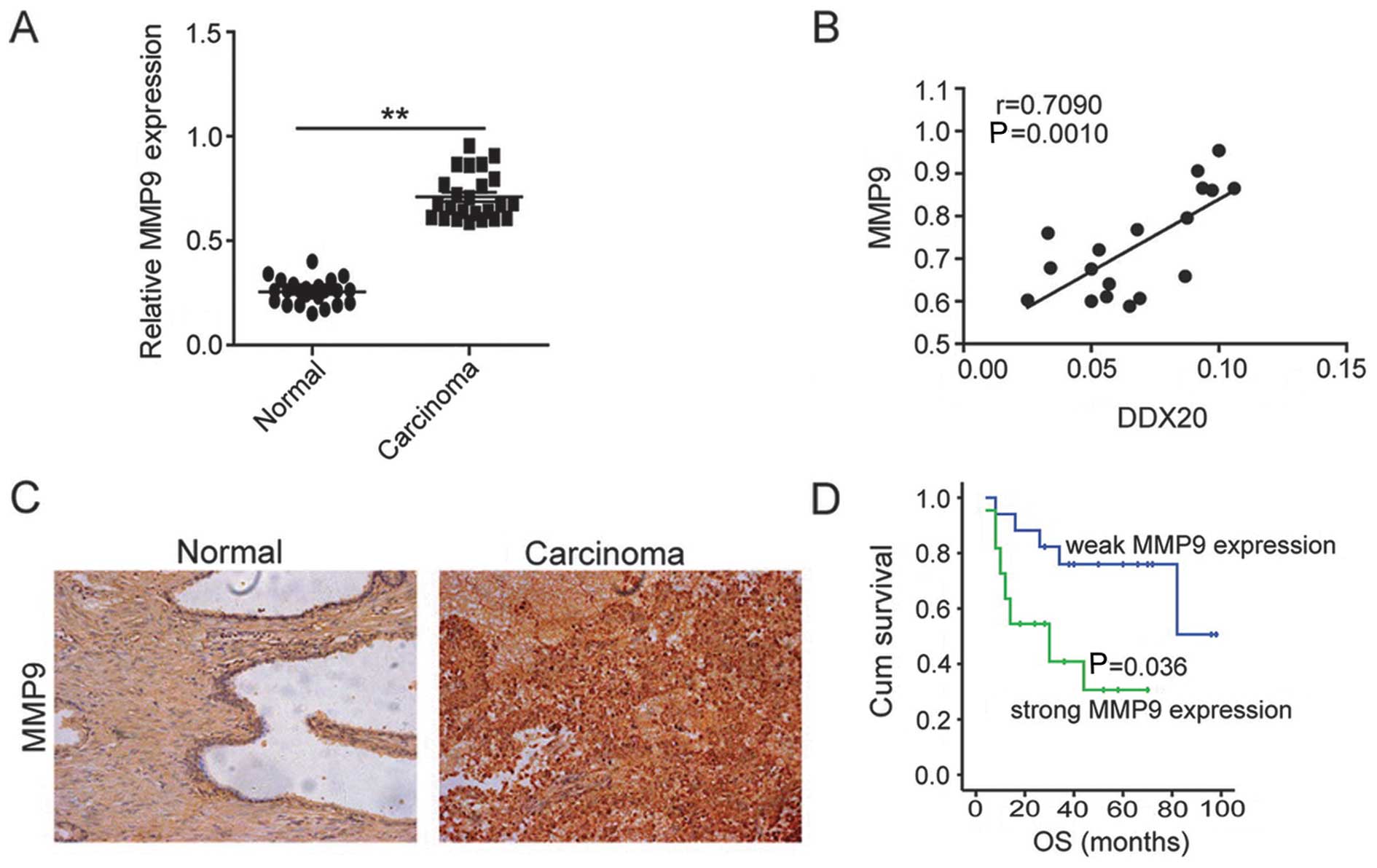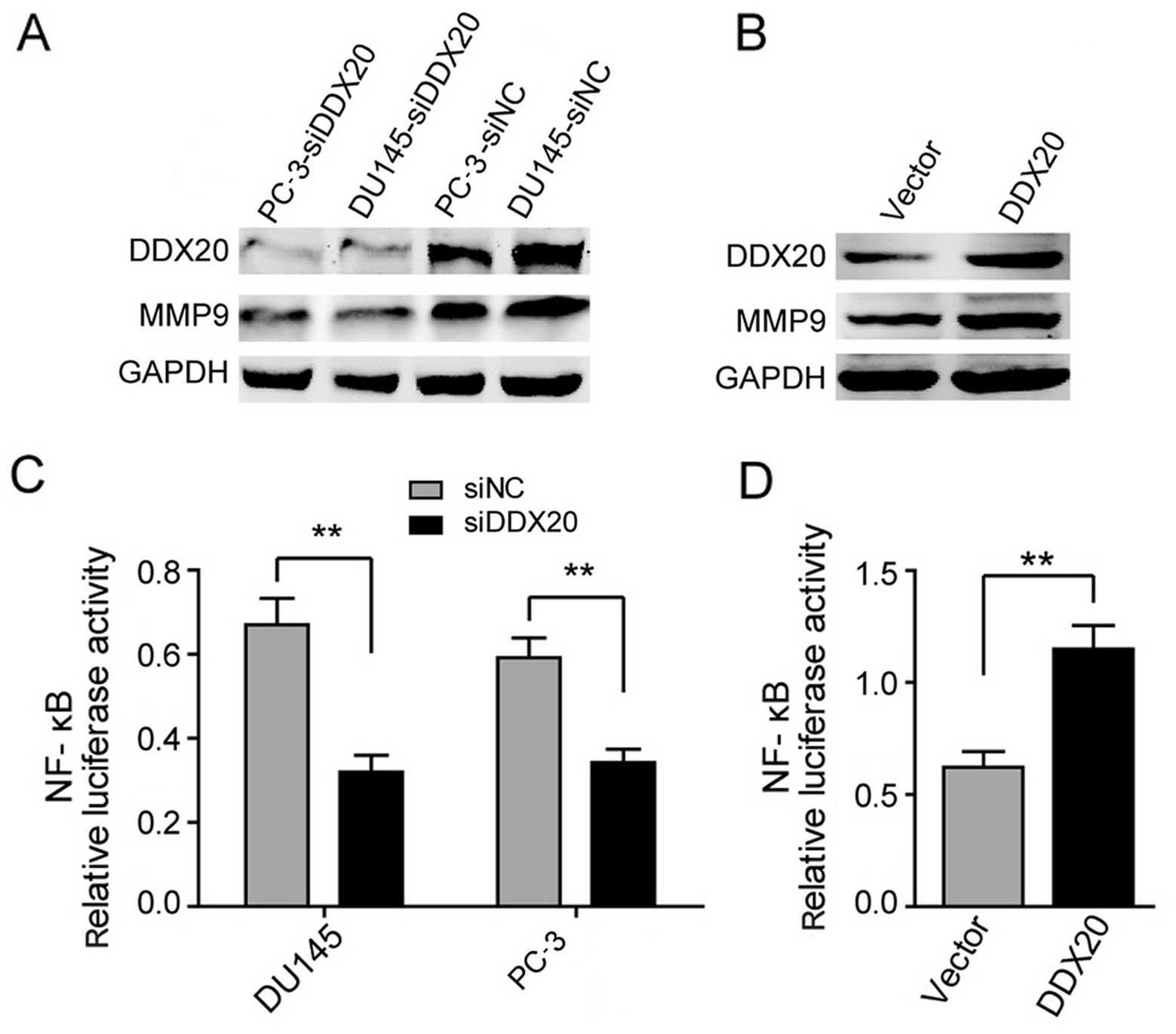|
1
|
Ferlay J, Autier P, Boniol M, Heanue M,
Colombet M and Boyle P: Estimates of the cancer incidence and
mortality in Europe in 2006. Ann Oncol. 18:581–592. 2007.
View Article : Google Scholar : PubMed/NCBI
|
|
2
|
Siegel R, Naishadham D and Jemal A: Cancer
statistics, 2012. CA Cancer J Clin. 62:10–29. 2012. View Article : Google Scholar : PubMed/NCBI
|
|
3
|
Hankey BF, Feuer EJ, Clegg LX, Hayes RB,
Legler JM, Prorok PC, Ries LA, Merrill RM and Kaplan RS: Cancer
surveillance series: interpreting trends in prostate cancer - part
I: Evidence of the effects of screening in recent prostate cancer
incidence, mortality, and survival rates. J Natl Cancer Inst.
91:1017–1024. 1999. View Article : Google Scholar : PubMed/NCBI
|
|
4
|
Struewing JP, Hartge P, Wacholder S, Baker
SM, Berlin M, McAdams M, Timmerman MM, Brody LC and Tucker MA: The
risk of cancer associated with specific mutations of BRCA1 and
BRCA2 among Ashkenazi Jews. N Engl J Med. 336:1401–1408. 1997.
View Article : Google Scholar : PubMed/NCBI
|
|
5
|
Gallagher RP and Fleshner N: Prostate
cancer: 3. Individual risk factors. CMAJ. 159:807–813.
1998.PubMed/NCBI
|
|
6
|
Beuzeboc P, Soulié M, Richaud P, Salomon
L, Staerman F, Peyromaure M, Mongiat-Artus P, Cornud F, Paparel P,
Davin JL and Molinié V: Fusion genes and prostate cancer. From
discovery to prognosis and therapeutic perspectives. Prog Urol.
19:819–824. 2009.In French. View Article : Google Scholar : PubMed/NCBI
|
|
7
|
Takata A, Otsuka M, Yoshikawa T, Kishikawa
T, Hikiba Y, Obi S, Goto T, Kang YJ, Maeda S, Yoshida H, et al:
MicroRNA-140 acts as a liver tumor suppressor by controlling NF-κB
activity by directly targeting DNA methyltransferase 1 (Dnmt1)
expression. Hepatology. 57:162–170. 2013. View Article : Google Scholar
|
|
8
|
Shin EM, Hay HS, Lee MH, Goh JN, Tan TZ,
Sen YP, Lim SW, Yousef EM, Ong HT, Thike AA, et al: DEAD-box
helicase DP103 defines metastatic potential of human breast
cancers. J Clin Invest. 124:3807–3824. 2014. View Article : Google Scholar : PubMed/NCBI
|
|
9
|
Chou YC, Sheu JR, Chung CL, Chen CY, Lin
FL, Hsu MJ, Kuo YH and Hsiao G: Nuclear-targeted inhibition of
NF-kappaB on MMP-9 production by N-2-(4-bromophenyl) ethyl
caffeamide in human monocytic cells. Chem Biol Interact.
184:403–412. 2010. View Article : Google Scholar : PubMed/NCBI
|
|
10
|
Ricca A, Biroccio A, Del Bufalo D, Mackay
AR, Santoni A and Cippitelli M: bcl-2 over-expression enhances
NF-kappaB activity and induces mmp-9 transcription in human
MCF7(ADR) breast-cancer cells. Int J Cancer. 86:188–196. 2000.
View Article : Google Scholar : PubMed/NCBI
|
|
11
|
Zender L, Xue W, Zuber J, Semighini CP,
Krasnitz A, Ma B, Zender P, Kubicka S, Luk JM, Schirmacher P, et
al: An oncogenomics-based in vivo RNAi screen identifies tumor
suppressors in liver cancer. Cell. 135:852–864. 2008. View Article : Google Scholar : PubMed/NCBI
|
|
12
|
Takata A, Otsuka M, Yoshikawa T, Kishikawa
T, Kudo Y, Goto T, Yoshida H and Koike K: A miRNA machinery
component DDX20 controls NF-κB via microRNA-140 function. Biochem
Biophys Res Commun. 420:564–569. 2012. View Article : Google Scholar : PubMed/NCBI
|















